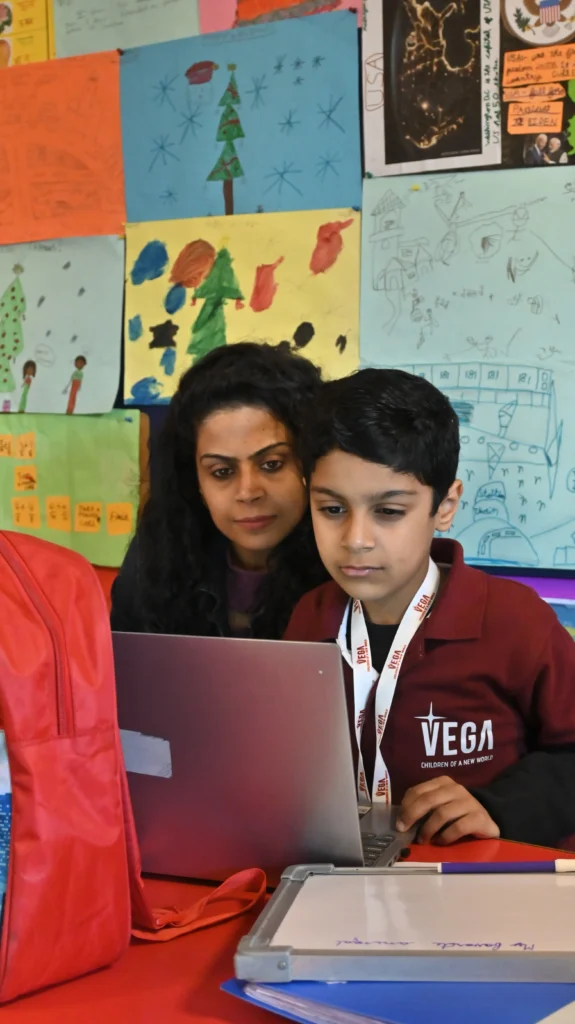Success in today’s rapidly evolving world depends more on one’s capacity for adaptation, learning, and perseverance than it does on one’s intelligence or talent. The idea of a growth mentality is beneficial in this situation. A growth mindset, as defined by psychologist Carol Dweck, is the conviction that aptitude and intelligence can be enhanced via hard work, education, and perseverance.
It gives kids the confidence and perseverance to face obstacles head-on. It gives parents the resources they need to help their kids develop resilience and accept learning as an ongoing process.
Comprehending the Growth Mindset
Fundamentally, a growing mentality differs from a fixed mindset. A fixed mindset, which frequently results in a fear of failing and a tendency to shy away from difficulties, holds that intelligence and skills are natural and unalterable.
A development mentality, on the other hand, places more emphasis on advancement, hard work, and the conviction that failures are growth opportunities. Pupils who embrace this viewpoint are more likely to take chances, accept failure as a necessary part of learning, and grow more self-assured.
Advantages for Learners
Developing a growth mindset in pupils changes the way they learn. Students start to emphasise diligence, practice, and perseverance instead of grades or being “naturally gifted.” Problems in science, math, or the arts no longer seem like obstacles but rather as chances to improve.
In addition to raising academic achievement, this mindset fosters creativity, adaptability, and problem-solving abilities—qualities necessary for success in the long run. Additionally, pupils who have a growth mindset are more emotionally resilient, handling setbacks better and embracing criticism as a tool to improve.
Parents’ role
In order to cultivate and reinforce a growth mindset at home, parents are essential. Modelling a constructive approach to difficulties is effective because children frequently imitate the attitudes and actions of their parents. Parents can highlight effort, tactics, and perseverance rather than just rewarding results like good grades.
Saying “I’m proud of how hard you worked on that project,” for instance, changes the emphasis from innate skill to tenacity. Children are encouraged to take risks without worrying about being judged when they are raised in an atmosphere where making errors is accepted as a necessary part of learning.

Useful Techniques for Parents
- Model Resilience: Tell youngsters about your own triumphs over adversity to help them understand that failures are common.
- Encourage Curiosity: Encourage a passion for learning outside of the classroom through reading, hobbies, and mastering new skills.
- Praise Process, Not Perfection: Give credit for effort and innovative thinking rather than merely the end product.
- Normalise Struggle: Remind kids that learning may be difficult and that overcoming obstacles is a sign of strength rather than weakness.
- Give Helpful Criticism: Advise on a way that inspires rather than deters.
Useful Techniques for Students
- Accept Challenges: See challenging assignments as chances to grow rather than as dangers.
- Learn from Mistakes: Examine what went wrong and make improvements based on that knowledge.
- Seek Feedback: Don’t take constructive criticism personally; instead, take it as advice.
- Value Effort: Acknowledge that practice, perseverance, and patience are frequently necessary for advancement.
- Establish Objectives: To boost motivation and confidence, divide more ambitious objectives into more manageable, smaller tasks.
For both parents and students, cultivating a growth mindset is a gift that lasts a lifetime. It helps pupils develop resilience, flexibility, and a passion for learning that goes well beyond the classroom. It gives parents a powerful framework for guiding their kids toward persistence and self-assurance. Families may face problems with hope and curiosity if they change their attention from fixed abilities to constant growth. A growth mindset guarantees that parents and students are prepared not only to adapt but to flourish in a time of perpetual change.
Vega Schools offers holistic education to children in Delhi NCR and is rated among the top Schools in Gurgaon. Its modern infrastructure, facilities, and experienced teachers are a big asset to the learning & development of students, be it for Nursery, Primary or Senior children making Vega Schools the best schools in Gurgaon. For information about admission please visit the Vega Schools campuses in Sector 48 and Sector 76 Gurugram.
